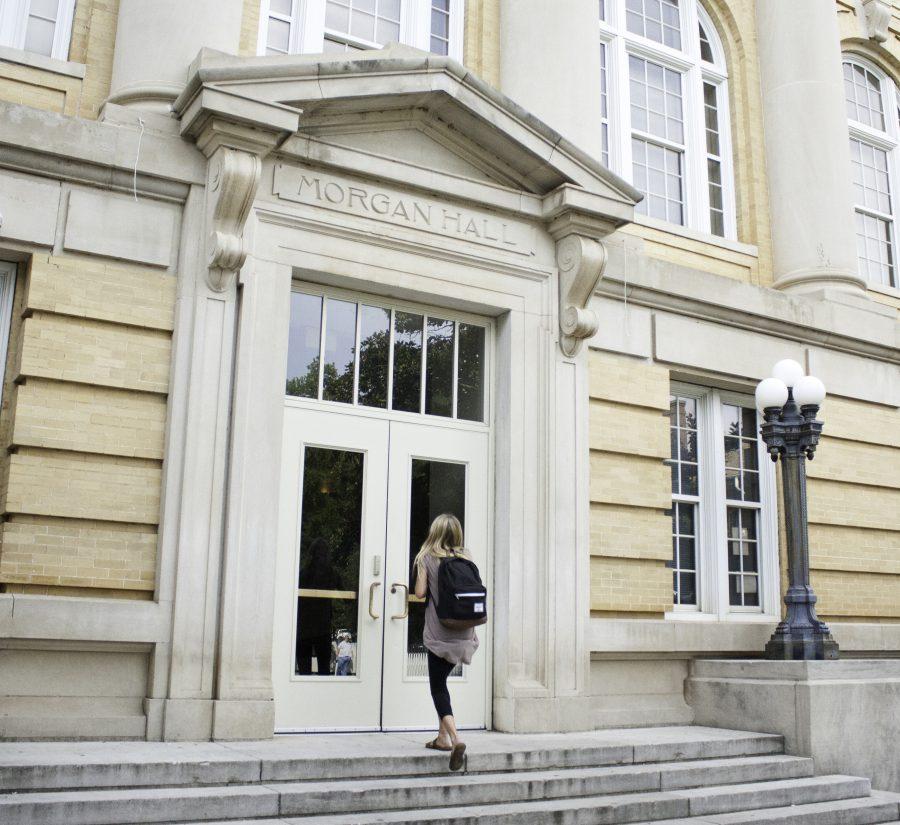They know better.
Though that criticism may have caused the number of English majors at universities across the country, including at The University of Alabama, to decline over the years, it does not mean it’s true. The faculty and students in the University’s English department prove the program is as vibrant as ever and vitally important in preparing students for their professional careers.
Practically every English major began their love affair with the written word at a young age. Describing themselves as glorified bookworms and lovers of literature, professors and students alike find themselves at the mercy of their passion.
“I was a voracious reader when I was a kid,” said Andy Crank, an English professor as well as the faculty advisor for the English honors society, Sigma Tau Delta. “At one point when I was 11 or 12, I just started reading anything I could get my hands on. I would just be at the library for hours. When I went to school, I found that I had a skill set for all the classes that involved reading and writing. It became clear that I had an aptitude for [English].”
A love for reading was the jumping-off point as well for Joel Brouwer, the chair of the English department, who has witnessed what he believes to be positive changes in the department since he was studying English and creative writing at Sarah-Lawrence and Syracuse University.
“The department of English traditionally has been associated with the study of literary history, but today we are more focused on not just the content of literary history but also a certain set of reading and writing skills,” Brouwer said. “One really important skill that I think we bring to our majors is the ability to read texts critically and then respond to them in clear writing and also through effective verbal communication.”
Demand for that specific skill set is slowing down, Brouwer said, and the human aspect involving writers, marketers and educators is growing. Studying English offers students a thorough background in communication skills necessary to perform well in an interview, write a strong cover letter, argue an opinion and think critically.
“Yes, we read a lot,” said Ashley Seiss, a senior majoring in English. “But it’s not like a book club the entire time. You break down every single thing, developing your ability to properly articulate how you feel about something and discuss those things and debate them.”
Amanda Bennett, a senior majoring in English and African American studies, came to the English department with an appreciation for the marginalized voices that English studies helps push to the forefront and the opportunity for activism it allows and encourages.
“You can actually go out into the world and apply what you learn in your discipline to helping other people,” Bennett said. “Some of our greatest authors that we’ve studied have also been activists.”
Humanities majors are often harpooned in the media and popular culture for their alleged lack of worth, but many refuse to account for English’s strengths in professional development.
“Choosing a major is not necessarily choosing a profession,” Crank said. “Choosing a major is choosing to engage in something you think of as a stepping stone to your potential profession. And if that’s the case, then English has got to be one of the most valuable majors out there because of the lessons it teaches and how it encourages critical thinking.”
With faculty members like Crank, Brouwer and other acclaimed scholars such as Trudier Harris, the University’s resident expert in African American literature, and Michael Martone, a prolific writer and creative writing instructor, students who choose to major in English are in safe hands.
“The faculty that we have are very knowledgeable and incredibly passionate about what they teach,” Seiss said. “I could write you a paper on every instructor I’ve had and how incredible they are.”
Housed in Morgan Hall, which Seiss and Crank both described as having a lot of “character,” the English department is home to around 400 English majors. With a comprehensive list of focuses, the English major spans a broad array of topics.
“There’s just a lot of excitement and energy and activity and resources in this department, and when you couple that with the tremendous faculty,” Crank said. “I think it’s exciting for me as a faculty member to come into work everyday, so it’s got be exciting for students.”
Seiss, like many English majors, said she would not trade her experiences in the storied corridors of Morgan Hall for anything.
“If you’re considering [majoring in English], don’t discount it and don’t let what other people say discourage you,” Seiss said. “There are so many opportunities for growth. If you like reading and you like a tight-knit community, it’s a great place to be.”









